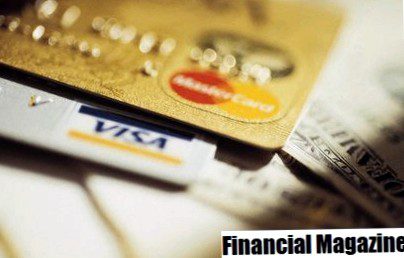Medical credit cards: 4 important rules to know

If you've heard of medical credit cards, it's probably because of a brochure you received from your doctor or dentist's office. Since not all medical procedures are covered by health insurance, you may have been looking for payment options.
Experts advise us to be very careful before agreeing to any of these cards. A medical credit card may just be a financial wolf in sheep's clothing. (See also: Pros & Cons of Healthcare Credit Cards .)
1. Medical credit cards: Avoid being in
being lured A doctor's office is sometimes an emotionally charged environment, but it's also a place where people believe they can trust. When medical professionals tell you that a particular payment option is a good deal, you tend to believe them because doctors elicit a higher level of trust than the average salesperson.
You might be looking for financing for something like cosmetic procedures, but for those who don't have insurance just out of pain at the dentist's office, these cards can look tempting.
Or maybe it's your pet. Who wants their beloved family cat to continue suffering because they don't have the money to pay for the procedure?
Combine the emotional atmosphere of the doctor's office with the good-looking, friendly person on the front of the brochure, and you could be hooked in minutes.
Be forewarned: while it may be okay to trust your doctor with your medical care, it's not wise to trust it with your financial health. Think about it this way: you don't trust your financial advisor to make important medical decisions, or?
2. Beware of the interest rate trap
First, the interest rate is comparable to a credit card you would get at a retail store. That is, as soon as an introductory offer expires, you can expect the interest rate to be higher than 25%.
Second, even if there is a rate of introduction, do not fall for it. Yes, it's true that some of these cards offer you a "deferred interest" plan, but many of the plans are very difficult to understand, which makes them potentially dangerous. If you pay the full amount before the introductory period ends, you will likely have an interest-free loan, but most people will not pay it back in time. And if the balance isn't paid in full during the phase-in period, any interest that should be accrued – called retroactive interest – will be added to your balance. At 25%, that can be a lot of money.
Do not assume that you will beat the odds. Approximately eight out of ten people will not pay back their balance in time to avoid accruing interest. (For more read , why offers with special payments are a trap.)
3.Check your bills
Third, medical credit cards, much like payday loans, have been the subject of investigations in the past. (See also: Caution with payday loans .) As Attorney General of New York, Andrew Cuomo launched an investigation into numerous consumer complaints in 2010. Some claimed they were charged for procedures they never had, while others who were eligible for Medicaid were told to apply for medical credit cards.
4. Look for alternative financing
If you need money for medical care, these alternative sources can help you avoid falling into the medical credit card trap:
– Understand your insurance – Talk to your insurance company before any medical procedure and understand what it does and does not cover. You may be surprised to find you have coverage you didn't know about. If you need to borrow money for a medical procedure, consider the other suggestions here.
– Borrowing 401 (k) – If the operation is medically necessary, you may be able to borrow 401 (k). However, if it is cosmetic, LASIK or other elective surgery, you cannot.
– Apply for a general purpose credit card – Instead of applying for a medical credit card, use a general purpose card instead. The interest rate will likely be significantly lower and the terms will be easier to understand.
– Saving money – if you decide to have elective surgery, you save money. Using a credit card to buy anything is not good for your financial health. Cash will save you a lot of money in interest and reduce your financial risk.